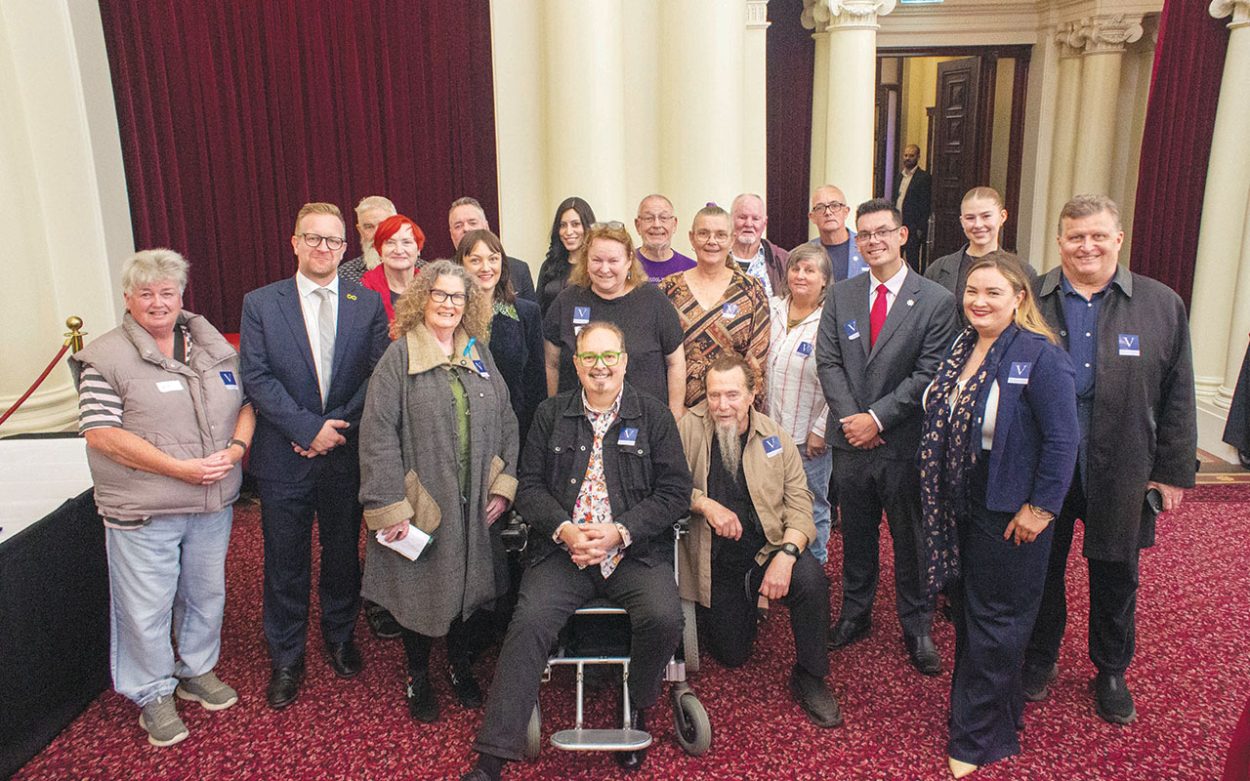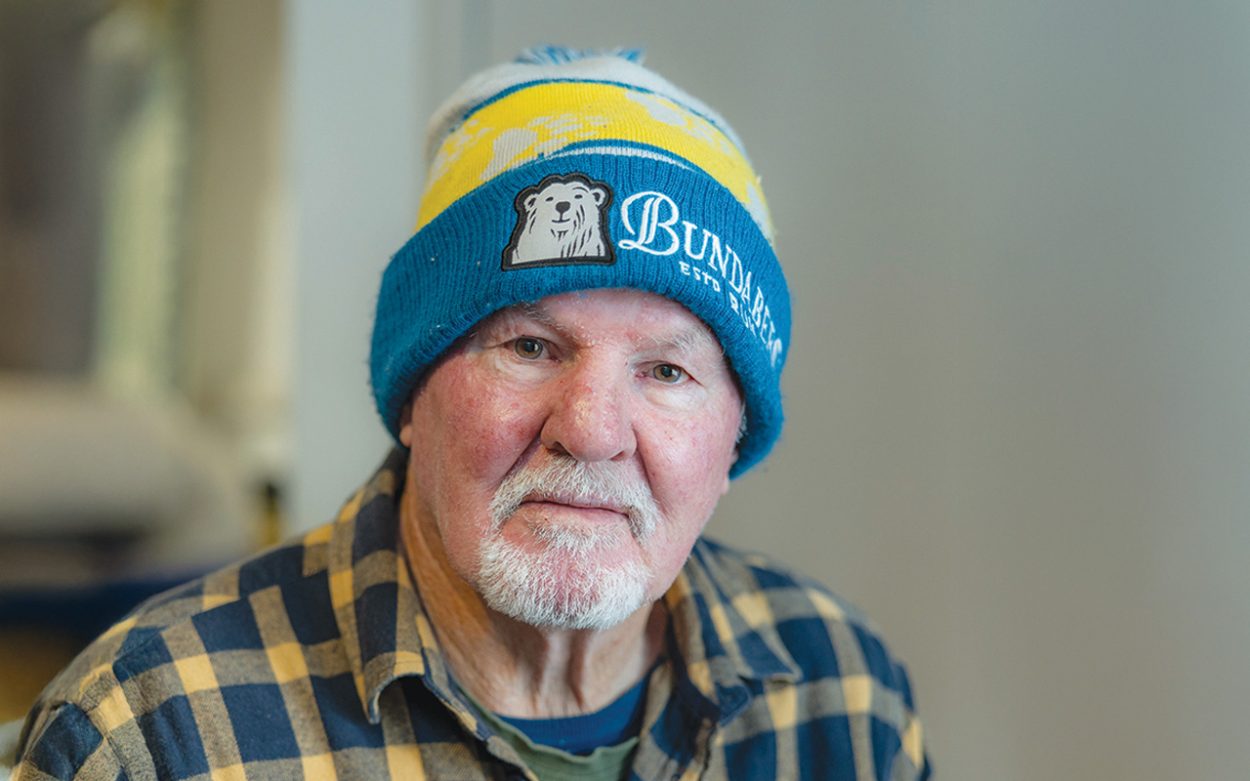A CHILD sexual abuse survivor is calling for new laws to hold organisations to account for abuse that occurs under their watch.
Frankston resident Brian Cherrie was sexually abused as a child living at the Salvation Army children’s home in Box Hill in the early 1960s. He said he has suffered lifelong effects from the abuse, which occurred when he was just 11-years-old, and is now dedicated to helping other victims. “I’m a forgotten Australian abused in a children’s home,” Cherrie said. “Now I run a Facebook group petitioning to get a Royal Commission which has 2500 members, most of them people that were abused growing up.”
Late last year the High Court overturned the Victorian Supreme Court’s ruling that the Catholic Diocese of Ballarat was vicariously liable for the sexual abuse of a young boy. The man who sued the diocese was originally awarded $230,000 damages by the Victorian Supreme Court. Cherrie says that changes to vicarious liability laws are needed to hold organisations to account for sexual abuse and allow victims to access compensation. He said “what my fight is for is justice for everyone. It’s very hard, and it’s been going on for a long time because there is so much money being thrown around to challenge everyone. “The government can change the law and they need to do it soon. I’ve been doing work for a lot of years, and now they need to get a move on.”
In the case of Bird vs DP 2024, the High Court’s finding read “this is the first time this Court has been asked to consider whether, absent a relationship of employment between a wrongdoer and a defendant, a diocese or a bishop may be held vicariously liable for the unlawful actions of a priest who sexually abuses a child. That, in turn, raises the question whether a relationship of employment is a necessary precursor – or a threshold requirement – to a finding of vicarious liability.
“The position in Australia is that an employer may be vicariously liable for the acts of its employees, but there is no such liability for the acts of those who are not in an employment relationship but, instead, are, for example, independent contractors or in a relationship ‘akin to employment’.” Cherrie said the High Court’s decision was “ridiculous”. “For the High Court to rule like this is absolutely absurd. People’s lives can really depend on this,” he said.
Earlier this month, Legalise Cannabis Party MP Rachel Payne introduced legislation to close the “loophole” to Victorian Parliament. The Bill was not supported by the state government or opposition.
Payne said “right now, victim survivors can’t seek financial compensation from many institutions such as churches and sporting clubs, because their perpetrator was not legally an ‘employee’, but instead classified as a volunteer or spiritual counsellor. The High Court said loud and clear that it was the job of parliament to fix the law and hold these institutions to account.”

“It’s a shame that neither the Government or Opposition backed this bill, but rather again said they want Australia’s attorney-generals to come up with a national approach and move forward in unison. However other states are resisting change and don’t see this as a priority, it’s time Victoria found the courage to go it alone and do the right thing by victim survivors,” Payne said. “We’re talking about justice for people who as children and teens were subjected to the most heinous abuse, and now their hurt and injury are not being fairly acknowledged or recompensed. This is re-traumatising people. We have even heard of people taking their own lives while they wait for justice.”
Payne’s Bill sought to “amend the Wrongs Act 1958 to make certain organisations vicariously liable for the abuse of children by persons akin to employees of those organisations and to consequentially amend the Victoria Police Act 2013.” Victorian Attorney-General Sonya Kilkenny has defended the state government’s position, saying “the Private Members Bill is broad and we would need to do more work to understand the legal risks and potential unintended impacts on community, volunteer and not-for-profit organisations.”
“We have always sent a clear message to child abuse survivors – we stand with you in your fight for justice and always will,” Kilkenny said. “I have raised this matter with Attorneys-General across Australia as this is a national issue, and I will be reporting back to them with options for consideration. These will need to be carefully considered to ensure they don’t cause more problems than they resolve. “This issue is important to me, and this government is closely considering the implications of this decision – and our options.”
Frankston MP Paul Edbrooke spoke about the Bird vs DP decision in Parliament last month – he said “This recent High Court ruling, which declined to recognise that vicarious liability extends beyond a strict employment relationship, is a profound blow to the ability of victims of child sex crimes by clergy and others to recover compensation.”
“This ruling means many Australian survivors will not achieve the justice they deserve. The consequences of this decision are dire, and victims all around the country are seriously impacted by this arcane and highly injurious decision. Many of them struggle as a result of their abuse just to stay alive,” he said. “Claims that were well advanced in the litigation process are now having to be delayed and put on hold, leaving these already traumatised and vulnerable people further traumatised. This ruling signals to survivors that their suffering can be disregarded and creates a legal shield for institutions to avoid responsibility, which is becoming something they seem to excel at. I urge everyone in this Parliament to prioritise this absolutely critical issue and take decisive action to correct this profoundly harmful injustice any way we can and represent the survivors in your communities.”
First published in the Frankston Times – 27 May 2025

